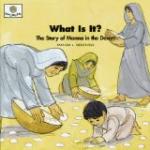At the man’s feet lay three camels, superb beasts. One red brown and one-humped, packed with a seemingly huge load which in reality it hardly felt, and two Bactrian or two-humped, pacing dromedaries of Dhalul, one of deepest black and therefore most rare, with black saddle cloth embroidered in silver, the third of a light golden colour, decked out in cloth of softest silk patterned with glistening jewels, and shimmering crystal specks, cushions padding the saddle-seat, to which hung stirrups of silver.
About this beast’s neck, outstretched upon the sand, lay a garland of flowers, upon the ground by its side lay an Eastern rug of purple shade, covered inches deep in flowers of every kind.
There was no grumbling or snarling, they knew their master and lay still, until, with a slight grunt, one raised its head and looked towards the East, as the man with a muttered “Allah” slowly moved towards the gate.
Putting his hands to his lips and forehead and murmuring, “Peace be upon you!” he took Jill’s dressing-case from her.
* * * * * *
“I’m sorry to be so late,” she said in a voice devoid of anything in the way of tone or inflection, “and I had to bring my dressing-case, it would be so tiresome to be stranded in the desert with no looking-glass or face cream, wouldn’t it?”
“It would be terrible!” was the answer, as though a dearth in dates was in discussion.
And then Jill sat down upon a convenient block of marble, and searching in her cheap bag for one of those Russian cigarette cases of wood, which had the advantage of being inexpensive and distinctive compared to those of gold, silver, or silver gilt, which jingle so irritatingly against the universal gold, silver, or silver gilt bag, took out a cigarette, lit it, and began to make conversation.
It is very difficult to describe the girl’s frame of mind at this moment when she stood upon the verge of great happenings, or in fact of any moment when danger, possible or certain, confronted her.
She was perfectly calm, in fact a little dull, with a heart which physically neither slowed nor hastened.
Yet it was not the fearlessness of blissful ignorance, or the aggravating recklessness of the foolhardy.
Three times she had been in actual danger of death: once when her horse bolted, making straight for the cliffs a short way ahead; another time when the receding tide had caught her, pulling her slowly out to sea, and never a boat in sight; and again when taking a pre-breakfast stroll on the Col di Tenda, she had encountered a fugitive of the law desperately making for the frontier, who, half crazed with fear, sleeplessness, and hunger, literally at the point of an exceedingly sharp knife had demanded money, or bracelet, in fact anything which could be transformed into a mattress, and coffee, polenta, cigarette or succulent frittata.
After each of the preceding incidents she had tried to analyse her utter want of feeling, her inability to recognise danger, her almost placid confidence in an ultimate happy ending.




